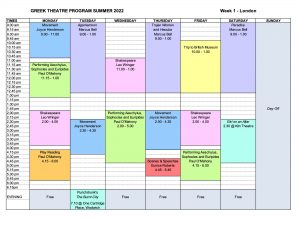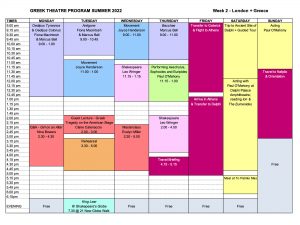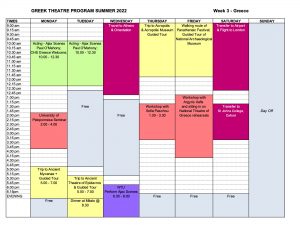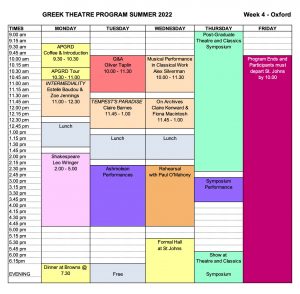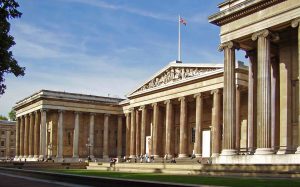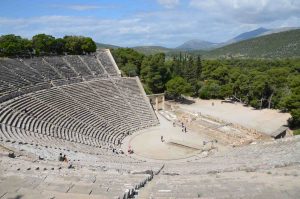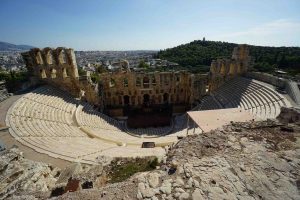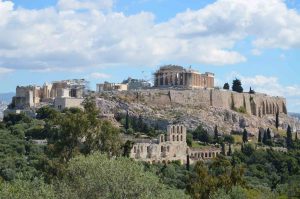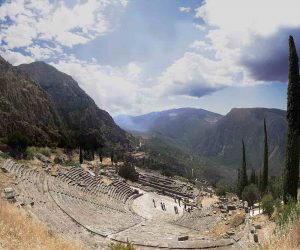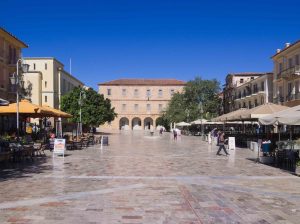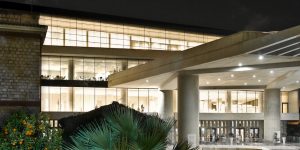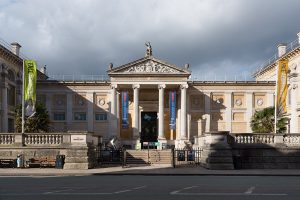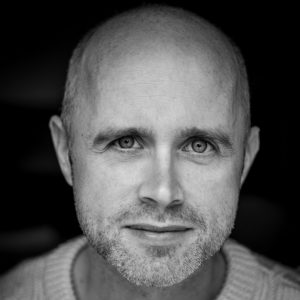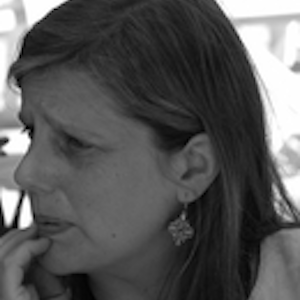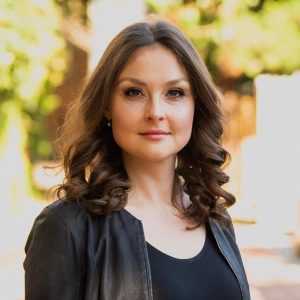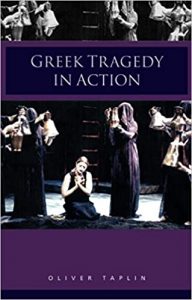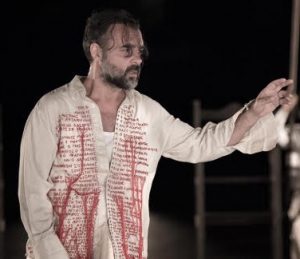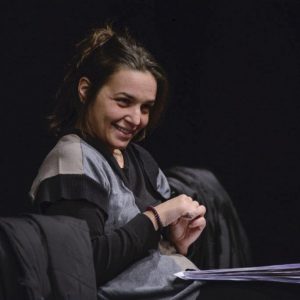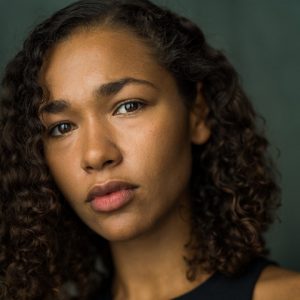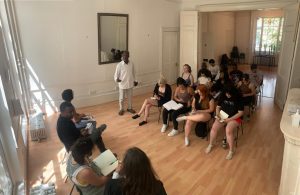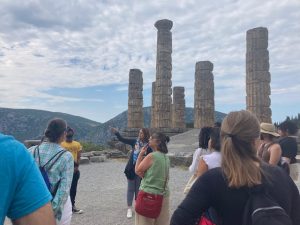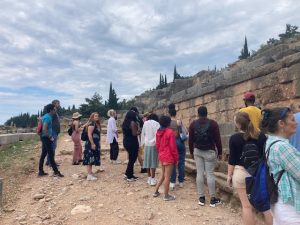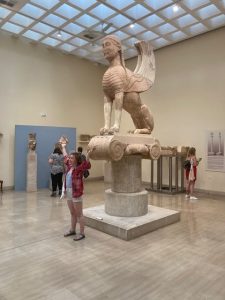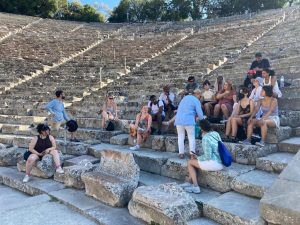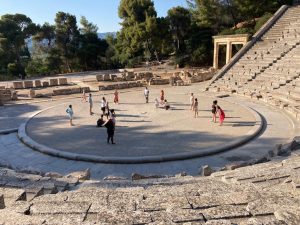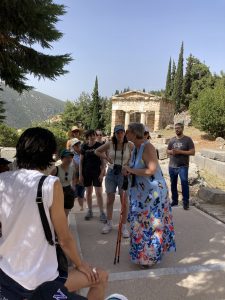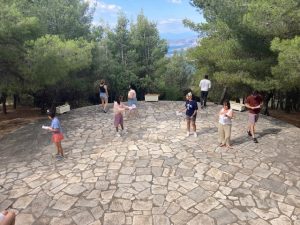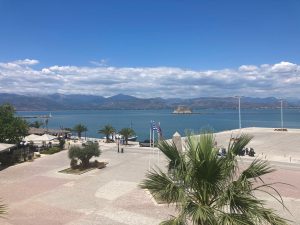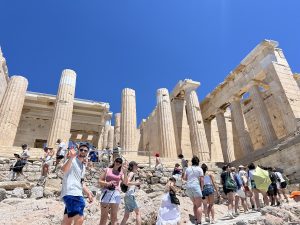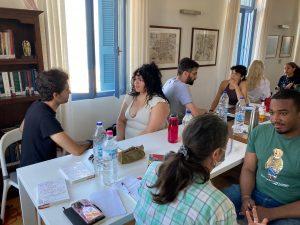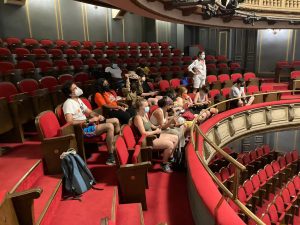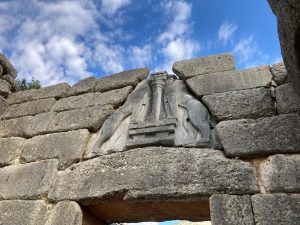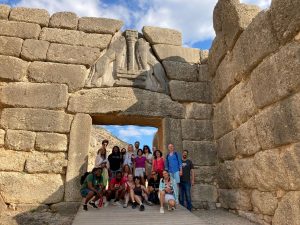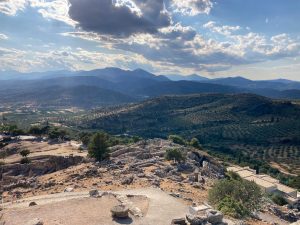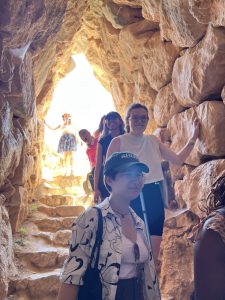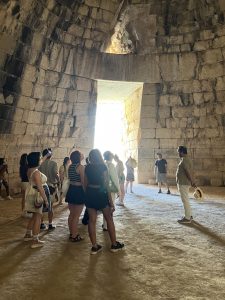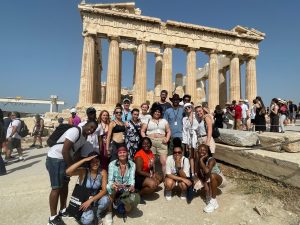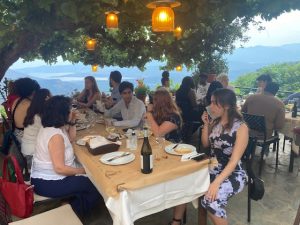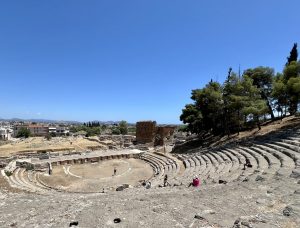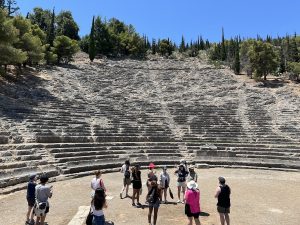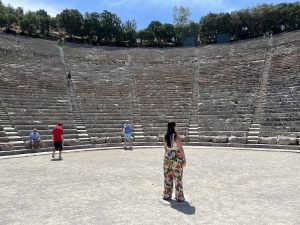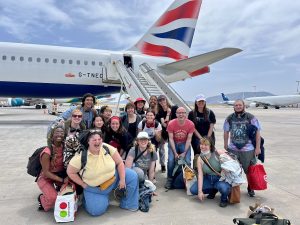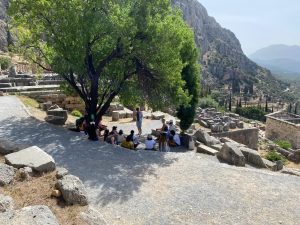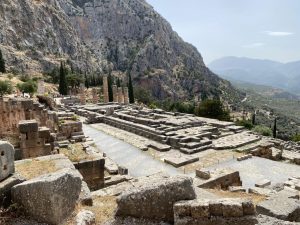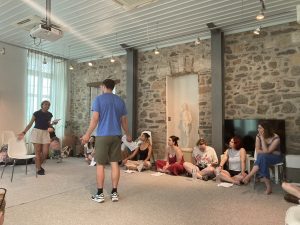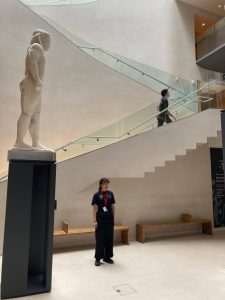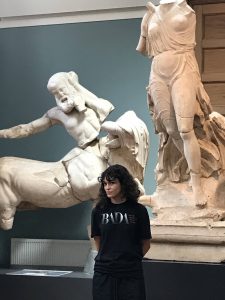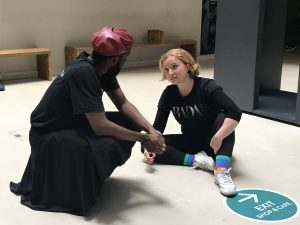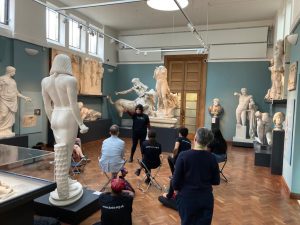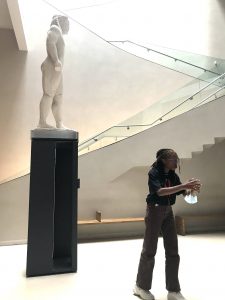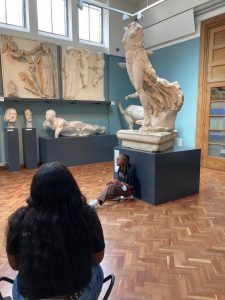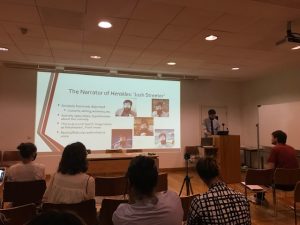GREEK THEATRE PROGRAM
Greek Theatre: From the Ancient World to the Modern, Through Theory and Performance is BADA’s month-long summer program dedicated to exploring the performance and reception of ancient drama. Its interdisciplinary model means it is suitable for students and theatre practitioners at various stages of their careers.
Participants will spend the first ten days of the course in London before travelling to Greece for ten full days and then returning to the UK for a final residency in Oxford.
At the heart of the course lies the fruitful interaction between text, performance and context, paying close attention to the cultural, social and political developments in 5th Century BCE Athens. We’ll combine theory and practice throughout, and there will be opportunities to perform in Greece and in Oxford.
Sign up for our Greek Theatre mailing list for news, announcements, and application reminders.
-
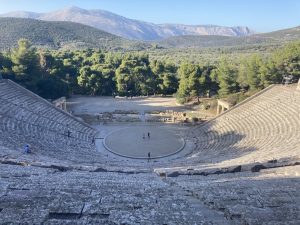
I’m delighted to lead this course for BADA – it is a unique opportunity to explore Greek theatre throughout the ages with constant practice-based sessions designed to deepen understanding of its cultural and historical legacy. The course represents the perfect alignment of BADA’s rich tradition of training in London and Oxford, with the huge benefit of exposure to the sites of Ancient Greece. We have created an incredible itinerary, with access to academics and practitioners with compelling expertise in research, archiving and performance.
There will be a maximum of 18 participants on this course; the small group size allows us to tailor aspects of the course to meet this unique group’s interests.
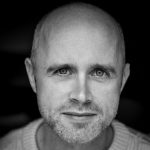
Paul O’Mahony
Course Director, Greek Theatre -
Applications for the 2025 Greek Theatre Program are now closed. To enquire about any available late spaces please contact course director Paul O’Mahony on pomahony@bada.org.uk
Your application for Greek Theatre will include:
-
- Application form
- Personal statement (approximately 500 words): Tell us about your background/experience and why you are interested in attending this program.
- Resume
- Academic Recommendation
If you would like to be notified about future sessions, please sign up for our Greek Theatre mailing list.
-
-
2025 Dates
7th June Arrive in London 9th June Teaching starts 17th June Travel to Greece 28th June Travel to Oxford 3rd July Symposium; final day of program 4th July Participants depart
Sample Programme Schedule
-
Greek Theatre is an intense, interdisciplinary course that combines acting and performance work, academic writing, and archival research. The tragedies of Aeschylus, Sophocles and Euripides will form the basis of our work on this course – both in the classroom and during studio time. A reading list will be provided prior to the course beginning.
Classes include:- Athenian Tragedy in Performance Spanning performance practice in the ancient world up to and including its reception today. How have generations reimagined tragedy to speak to their own eras?
- Athens and Empire 5th Century BCE Athens was a fledgling democracy with a large empire. The tension inherent in this duality is often manifested in tragedy. This module explores the historical context of tragedy in Athens and its legacy today.
- Lectures & Guided Tours Talks and discussions sessions with visiting academics as well as expert-led tours of ancient sites
Studio work:
- Performing Aeschylus, Sophocles and Euripides This will comprise of acting classes on how to approach scenes, monologues and choral work. There will be sessions in movement work, and opportunities to explore the plays through informal offerings in Greece and Oxford.
- Masterclasses Practical and technique-based sessions with guest artists
Work ExpectationsIn addition to in-class acting and academic work and out of class/studio preparation, participants are invited to submit additional written work drawing from their theatre visits, site visits, and archive work:- Theatre reports (4 total)
- Research papers (2 total)
-
Ten days in London will be spent with time split between the classroom and the studio. Classes will cover the context of tragedy’s creation and early performance, and the reception of Attic tragedy in the UK and US, including workshops on the influence of ancient texts in the work of Shakespeare. Studio sessions will focus on performance technique, with choral work and acting classes incorporating speech and scene work. Masterclasses will be provided by leading practitioners working with the RSC and Shakespeare’s Globe Theatre.
There will be a guided tour of the British Museum and two trips to see performances in London.
-
We will then spend 10 days in Greece where we’ll retrace the route of the Panathenaic Festival procession in Athens, and visit the ancient sites of Delphi, Mycenae and Epidaurus. In Delphi we will rehearse in a private amphitheatre. We’ll hold a series of classes in Nafplio, and continue to work on scenes and monologues throughout our stay. There will be masterclasses with a leading actor and director from the National Theatre of Greece, and a choreographer from Greece’s National Opera company. You’ll be accompanied by the course director throughout, who will tie together the theory and practice of the course’s syllabus in the very locations which inspired and hosted the first performances of tragedy.
During your stay in Greece, you will see a number of ancient sites, including:
-
We return to the UK for our residency in Oxford. There we will be based at the Archive of Performances of Greek and Roman Drama, the foremost resource in the world for the study of tragedy and its reception. We’ll have full access to the archive with guidance from an archivist and a talk from Fiona Macintosh, along with workshops and classes eminent academics and artists. We’ll attend the post-graduate Theatre and Classics Symposium held by the APGRD in conjunction with the Royal Holloway Theatre Department, at which we will perform scenes and monologues from tragedy.
-
Greek Theatre Faculty come from top institutions and are foremost scholars in their fields or leading figures from the British theatre.
The Faculty have included:
-
Schedules permitting, we will be joined by artists for workshops and masterclasses during the course.
Guest Artists have included:
-
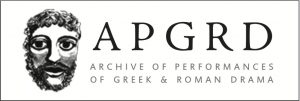 While in Oxford, we will be based at the APGRD (Archive of Performances of Greek & Roman Drama). The APGRD is a pioneering international centre for research into performances of Greek and Roman drama worldwide, from antiquity to the present, on stage, screen and radio, in opera and dance.
While in Oxford, we will be based at the APGRD (Archive of Performances of Greek & Roman Drama). The APGRD is a pioneering international centre for research into performances of Greek and Roman drama worldwide, from antiquity to the present, on stage, screen and radio, in opera and dance.Based at the University of Oxford, the APGRD’s rich collections and activities have been made possible by generous support from the AHRC, The Leverhulme Trust, The Andrew W. Mellon Foundation and The Onassis Foundation.
As well as hosting a high-profile series of public talks, the APGRD supports new writing and works closely with practitioners engaged in the creative arts and beyond.
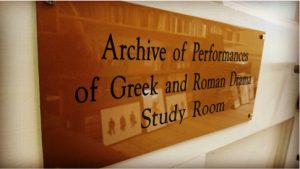 Research
Research
The provision of cutting-edge research is one of the APGRD’s primary aims, with a publication record to match.Our research team of experienced and emergent scholars has produced pioneering studies and our digital resources include freely available databases of both ancient and modern productions. New research programmes include Performing Epic; Translating Ancient Drama, and Interactive Multimedia e-books.
The APGRD aims to create a wider community of scholarship, drawing upon experts and practitioners from the worlds of classics, theatre, music and dance. This unique, multidisciplinary, and inclusive approach gives the APGRD additional vitality and relevance.
Preserve
Our archives contain over 10,000 items relating to modern performances of Greek and Roman drama. The centrepiece of the archive is the Leyhausen-Spiess collection, which documents European theatre history from the 1920s to the 1970s.Managed by a professional archivist, the APGRD archives are accessible to scholars and practitioners. To make an appointment to consult the collections, please see our Visit us page.
Our video, audio and manuscript collections provide the raw materials for future scholarship and allow modern performances to be preserved for posterity. Donations to the archive are welcome.
Create
From commissioning new plays to hosting rehearsed readings, the APGRD works to further the understanding of ancient theatre – where western drama began and where the first musical theatre appeared.The APGRD’s members have been producers, academic advisors and consultants on internationally acclaimed productions. The APGRD provides directors, writers, actors, choreographers and composers with a space to speak and engage with academics and students.
We welcome applicants at the undergraduate and graduate level as well as those who are not currently enrolled in educational programmes. Applicants aged 18 must have at least one year’s experience away from home to be considered for this course.Please note: Greek Theatre is a physically demanding course with a packed schedule that includes a number of walking tours and site visits. Teaching spaces and accommodations are accessible but the historical nature of the ancient sites allows for limited accommodations.
-
The 2025 Greek Theatre Program fees are: $8,850
Program fees include all excursions (theatre trips, site visits, museum admission and tours, etc.), air transportation to/from London to Greece, all ground transportation and accommodations while on the course.
- London Accommodations – should you wish to arrange your own accommodation for the London portion of the course, then the reduction in the course fee will be $825. Participants must confirm on acceptance whether they wish to make their own accommodation arrangements or use that arranged by BADA. Due to the high demands for accommodation in London during the summer months, we cannot guarantee that rooms can be made available should a later decision be made to take up the offer of accommodation booked through the course.
All fees are payable in US dollars. Please contact Acting Finance Director Helen Ainsworth at hainsworth@bada.org.uk should you wish to settle the fees in UK Sterling so that an appropriate rate can be agreed.
On acceptance, in order to hold their place, applicants will need to pay a non-refundable deposit of $500 and indicate whether they wish to make their own accommodation arrangements or use those arranged by BADA.
The remaining fees are due as follows:
Friday 21 March 2025 $3,700 Friday 11 April 2025 $3,000 Friday 2 May 2025 $1,650* The balance of fees payable become non-refundable on the due dates above.
* The balance due on May 2nd for those opting to arrange their own London Accommodations is $825.
Please note, in addition to the fees payable to BADA, participants are responsible for:
- Roundtrip Airfare to the UK
- Insurance
- Meals
- Spending money
Spending habits obviously vary widely between participants, but London is an expensive city. We recommend a minimum of £150 ($190) a week for food, laundry and transport if you mostly prepare your own food and use only public transport. Regular coffees, takeaways, meals out or use of cabs can quickly push the cost of subsistence and transport up beyond £200 ($250) per week.
Greek Theatre Program Refund Policy
A deposit of $500 is required on acceptance, which is non-refundable. The balance of fees payable fall due as stated above and become non-refundable on those dates.
If the program is canceled by BADA due to circumstances beyond our control, all fees, with the exception of the application fee, will be refunded. BADA accepts no responsibility for personally incurred expenses such as flights or pre-booked ground transportation.
Financial Assistance
Limited awards from the BADA scholarship fund are available to assist accepted applicants in defraying the costs of attending BADA’s summer programmes. These awards are based on need and merit.
Before applying to the program, please note the fees and consider how you will fund the experience should you be accepted. Only a very small number of applicants accepted to the summer 2025 programs will be chosen to receive scholarship funding from BADA. Awards could be a small as a few hundred dollars. Most accepted applicants will need to provide their own funding.
If you would like to discuss the possibilities of receiving scholarship funding prior to submitting an application, please feel free to contact our Summer Programs Admissions Coordinator, Jennifer Rockwood: jrockwood@bada.org.
uk. Note: Fees for BADA’s summer programmes are not eligible for payment under the federal loan system nor do they qualify as higher education expenses under the 529 plan as they are not credit bearing. Unfortunately, BADA is not in a position to assist in the retention of any additional outside grant or loan assistance. -
Accommodations in London will be shared twin rooms at the Stay Club North Acton. Accommodations in Greece will also be in shared twin rooms. All rooms in Oxford are single occupancy. Further details on accommodation will be sent to you as part of pre-arrival materials.
-
BADA is not an accredited US institution; we are unable to provide academic credit for the course.
With its intensive workload, 94 contact hours and 86 further unsupervised work hours, this program has a suggested credit equivalency of two 3 credit courses, in line with other programs BADA runs. You will finish the program with a portfolio of work, and the course director can provide a written assessment for your home institution.
Classroom and Coursework breakdown by hours
94 hours of contact time
Classroom time in London – 16 hours
Acting classes in London – 12 hours
Trip to British Museum – 3 hours
London masterclasses – 4 hours
Greece – 2 masterclasses – 4 hours
Greece – guided tours of Delphi, Mycenae, Epidaurus, Acropolis of Athens – 12 hours
Greece classroom time – 9 hours
Greece acting class time – 18 hours
Oxford classroom time – 8 hours
Oxford acting classes – 8 hours86 hours of unsupervised work
London – 2 theatre trips – 6 hours
Greece – 2 theatre shows – 6 hours
Report on each theatre show we see – 4 x 2 = 8 hours
Oxford seminar – 8 hours
APGRD access time – 10 hours
Performance writing/prep – 40 hours
2 papers x 4 hours – 8 hours -
Hear what some of our Participants have to say about their time on the course:
Daniella Ochman (GT ’22) Gabriella Weltman (LTP ’19, GT ’22)
For enquiries about BADA’s Greek Theatre program, please contact:
Paul O’Mahony, Course Director
pomahony@bada.org.uk

